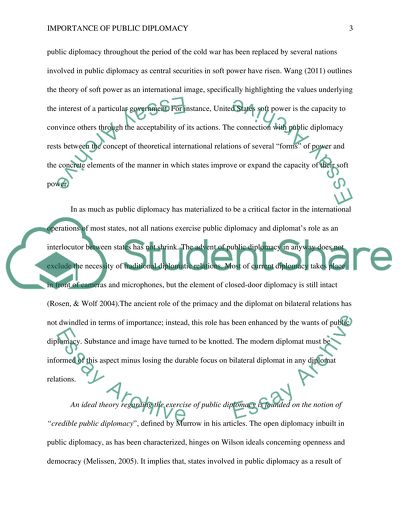Cite this document
(“14.Public Diplomacy has become increasingly important in recent years Assignment”, n.d.)
Retrieved from https://studentshare.org/social-science/1685428-14public-diplomacy-has-become-increasingly-important-in-recent-years-why-discuss-and-illustrate-with-empirical-examples
Retrieved from https://studentshare.org/social-science/1685428-14public-diplomacy-has-become-increasingly-important-in-recent-years-why-discuss-and-illustrate-with-empirical-examples
(14.Public Diplomacy Has Become Increasingly Important in Recent Years Assignment)
https://studentshare.org/social-science/1685428-14public-diplomacy-has-become-increasingly-important-in-recent-years-why-discuss-and-illustrate-with-empirical-examples.
https://studentshare.org/social-science/1685428-14public-diplomacy-has-become-increasingly-important-in-recent-years-why-discuss-and-illustrate-with-empirical-examples.
“14.Public Diplomacy Has Become Increasingly Important in Recent Years Assignment”, n.d. https://studentshare.org/social-science/1685428-14public-diplomacy-has-become-increasingly-important-in-recent-years-why-discuss-and-illustrate-with-empirical-examples.


